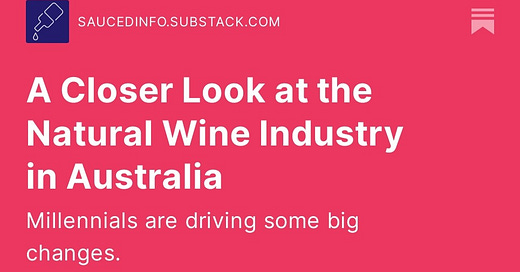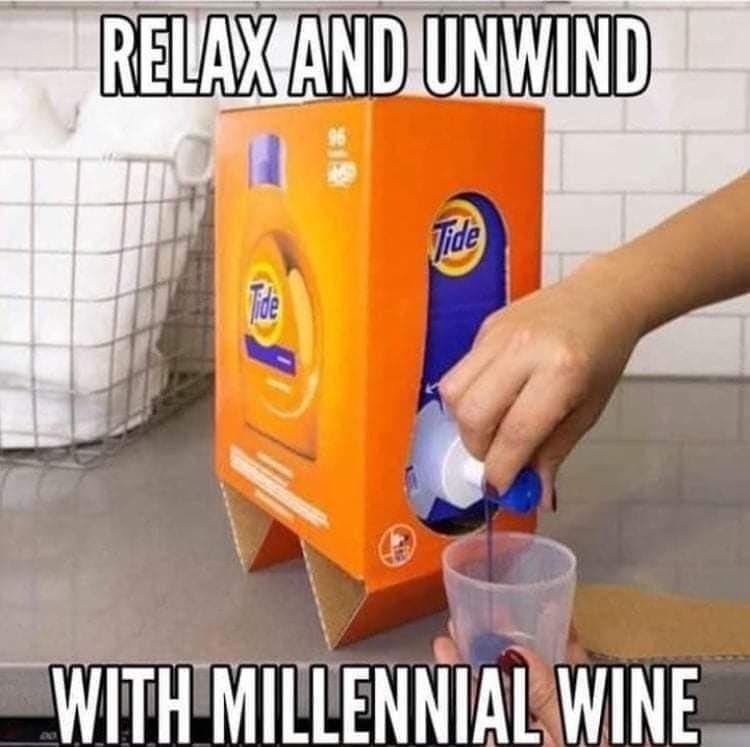A Closer Look at the Natural Wine Industry in Australia
Millennials are driving some big changes.
Have you been keeping up with the natural wine movement in Australia? It's been gaining a lot of traction lately, and for good reason. People are looking for more authentic, expressive wines that are made using sustainable and responsible methods. There are thousands of articles asking ‘what is natural wine?’ but I think a better question to ask is: where is natural wine taking us?
Let’s dig in:
Natural wine is made from grapes. That’s pretty much it. Grapes that are grown organically or biodynamically, and are fermented with native yeasts without the use of chemical additives or processing aids.
Conventionally produced wine, on the other hand, is made using more industrialised methods that involve the use of chemical additives and complex machines. These methods are designed to produce a more consistent and predictable product, and are often used to produce large quantities of wine for the mass market.
In the early days of the natural wine movement in Australia, there were relatively few producers, and the wines were often seen as unconventional and experimental. But as the movement has grown and gained wider recognition and acceptance, natural wine has become more mainstream and is now widely available in Australia.
So why do we care?
As we grow, we change. The production and consumption of natural wine in Australia is a small but growing segment of the wine market, and it's likely to continue to grow as more people become interested in exploring alternative wine styles and production methods. But it's worth noting that the overall wine market in Australia is dominated by large-scale wineries, in fact almost 50% of the grapes crushed last year (2 million tonnes) went to only 25 wineries. That’s a lot of grapes.
In contrast, there are 1900 small independent wineries in Australia, who share in 4% of the grapes (only 80,000 tonnes).
Because of this concentration of small winemakers, the natural wine movement in Australia is diverse and includes a wide range of producers and winemakers who are working with a variety of techniques and grape varietals to create unique and interesting wines. Some of the most famous natural wine makers in Australia include Gentle Folk, Jauma, VHS, Lucy M + Cleopatra, Little Brunswick Wine Co, DEFIALY and Blood Moon Wines. These winemakers do almost all of their work by hand, including selling the final product and sometimes delivering it too.
This is an exciting and innovative approach to wine production and offers consumers the opportunity to explore a wide range of expressive and interesting wines. As a result, the wine industry is changing. And driving that change is one group of people: millennials.
Millenials
These kids born between 1981 and 1996, they want something different when it comes to their vino. And it's not just about the taste, it's about the whole experience. So, what do they value?
First, convenience. They want it easy to buy and easy to drink. That means online ordering and wine delivery. It also means no cellaring, because the houses we can’t afford do not have cellars.
Second, authenticity. They want to know where that wine came from, how it was made and if it's good for the environment. Sustainable and environmentally-friendly practices are a must. Labels and bottle artwork are important for telling this story.
Third, experiences. They want to share a bottle of wine with friends and make memories. Wine tasting events, parties and wine clubs are perfect for that. Collaboration wines between two or more groups are also a great way to cross-promote wines to new customers.
Fourth, personalization. They want a wine that has been tailored to suit their needs. Subscription services and digital sommelier services can help provide that while also giving a tight feedback loop for thoughts and reviews on previous suggestions. New AI capabilities have also opened up huge opportunities for personalised wine recommendations.
So, my friends, the wine industry is changing, and it's all thanks to the millennials. They want something different, and it's up to us to give it to them. Are you ready to adapt?





